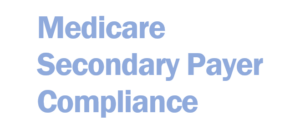The question of whether a state guaranty fund, which assumed outstanding claims for insolvent insurers, is considered a primary payer and owes money to Medicare, will have to wait for another day to be answered – for a second time.
The U.S. 4th Circuit Court of Appeals said this week that it could not decide the issue until the case moves through the federal administrative appeals process. That leaves states’ guaranty associations somewhat in limbo on their responsibilities under Medicare Secondary Payer Act, at least for now.

This case and a another 2022 federal appeal “are very important to the guaranty association community,” said Chris Blake, with the Nelson Mullins firm, who represents the North Carolina Insurance Guaranty Association (NCIGA).
The case was NCIGA versus Xavier Becerra, the current Secretary of the U.S. Department of Health and Human Services, and the Centers for Medicare and Medicaid Services, on appeal from the Eastern District of North Carolina. It has been closely watched by guaranty associations because the Medicare reporting requirement has been called “burdensome” to the guaranty funds. But not complying can be costly: By law, Medicare can assess fines of up to $1,000 per day, per claimant, when insurers fail to report certain claims to the federal agency, which often makes conditional payments when older workers are injured.
The Guaranty Association handles many – but not all – claims for insolvent insurers, including those for older workers’ compensation, no-fault auto and liability claimants who may also be covered by Medicare. When Medicare makes conditional payments after an injury to an older worker, insurers in most cases are required to reimburse the federal agency, and to regularly report claims from those people covered by Medicare.
The NCIGA lawyers have argued that the fund is exempt from the Medicare reporting requirements because it is not exactly an insurance company and is not a primary payer.
“The NCIGA is not the legal successor to any insolvent insurer,” does not “stand in the shoes” of the defunct carrier for all purposes, and pays only “covered claims,” not all outstanding claims, the association’s attorneys wrote in their 2020 complaint to the federal district court. Instead, the legal successor to each insolvent insurer is the court-appointed liquidator of that insolvent company, NCIGA argued.
 The association pointed out that the 9th U.S. Circuit Court of Appeals in 2019 had essentially agreed with its position, in California Insurance Guaranty Association vs. Azar. In a 2020 letter to CMS officials, the NCIGA asked CMS to confirm in an official opinion that the association was not, in fact, a primary payer and did not have to submit reports on Medicare recipients who were covered by defunct insurers, per the California court decision.
The association pointed out that the 9th U.S. Circuit Court of Appeals in 2019 had essentially agreed with its position, in California Insurance Guaranty Association vs. Azar. In a 2020 letter to CMS officials, the NCIGA asked CMS to confirm in an official opinion that the association was not, in fact, a primary payer and did not have to submit reports on Medicare recipients who were covered by defunct insurers, per the California court decision.
But for reasons that NCIGA said were not fully explained, CMS has declined to go along with that.
“The August 12, 2020 correspondence from … CMS offered no reason or explanation for the defendants’ conclusions that the 9th Circuit’s reasoning and result in Azar should not be applied as well to these defendants when dealing with the NCIGA,” Blake and fellow NCIGA attorney Joe Eason wrote in their complaint in the case.
That CMS officials had accepted the California ruling but denied the same type of request from NCIGA “cannot be justified or explained,” they added.
The Carolina team asked the federal court to step in and declare that the fund is not obligated by the Medicare Secondary Payer Act.
The lower court in 2021 dismissed the association’s argument, stating that the NCIGA lacked standing and did not show that it had been injured. The court also said it did not have jurisdiction because the association had not exhausted its administrative remedies. The Carolina lawyers argued that their appeal cannot go through the administrative review process because the association is not a primary payer.
Nonetheless, the 4th Circuit upheld the lower court’s dismissal, noting that the association had shot itself in the foot by also engaging in an administrative review.
“We conclude that the existence of the administrative appeal is fatal to appellant’s claim that it is completely precluded from seeking review of its argument that it is not a primary plan through the administrative process,” 4th Circuit Judge Stephanie Thacker wrote in the Dec. 14 opinion.
 The court based its opinion partly on a 2022 ruling from the U.S. 7th Circuit Court of Appeals that had found that the Illinois Guaranty Fund had not exhausted the agency review process in a similar appeal.
The court based its opinion partly on a 2022 ruling from the U.S. 7th Circuit Court of Appeals that had found that the Illinois Guaranty Fund had not exhausted the agency review process in a similar appeal.
“The exceptions to the Medicare appeal process are narrow, and the 4th Circuit followed the 7th Circuit in construing those exceptions very narrowly,” Blake said in an email.
He explained that because the multi-step administrative review process is so lengthy and applies only to reimbursement, the Carolina fund believed it was appropriate to pursue the court case and the administrative route at the same time.
For now, there will be no further appeal the Supreme Court.
“The NCIGA will wait for completion of the Medicare appeal process and then bring the issue again in federal district court,” Blake said.
Topics North Carolina
Was this article valuable?
Here are more articles you may enjoy.



 Insurance Issue Leaves Some Players Off World Baseball Classic Rosters
Insurance Issue Leaves Some Players Off World Baseball Classic Rosters  Allstate CEO Wilson Takes on Affordability Issue During Earnings Call
Allstate CEO Wilson Takes on Affordability Issue During Earnings Call  Insurify Starts App With ChatGPT to Allow Consumers to Shop for Insurance
Insurify Starts App With ChatGPT to Allow Consumers to Shop for Insurance  AIG Underwriting Income Up 48% in Q4 on North America Commercial
AIG Underwriting Income Up 48% in Q4 on North America Commercial 


